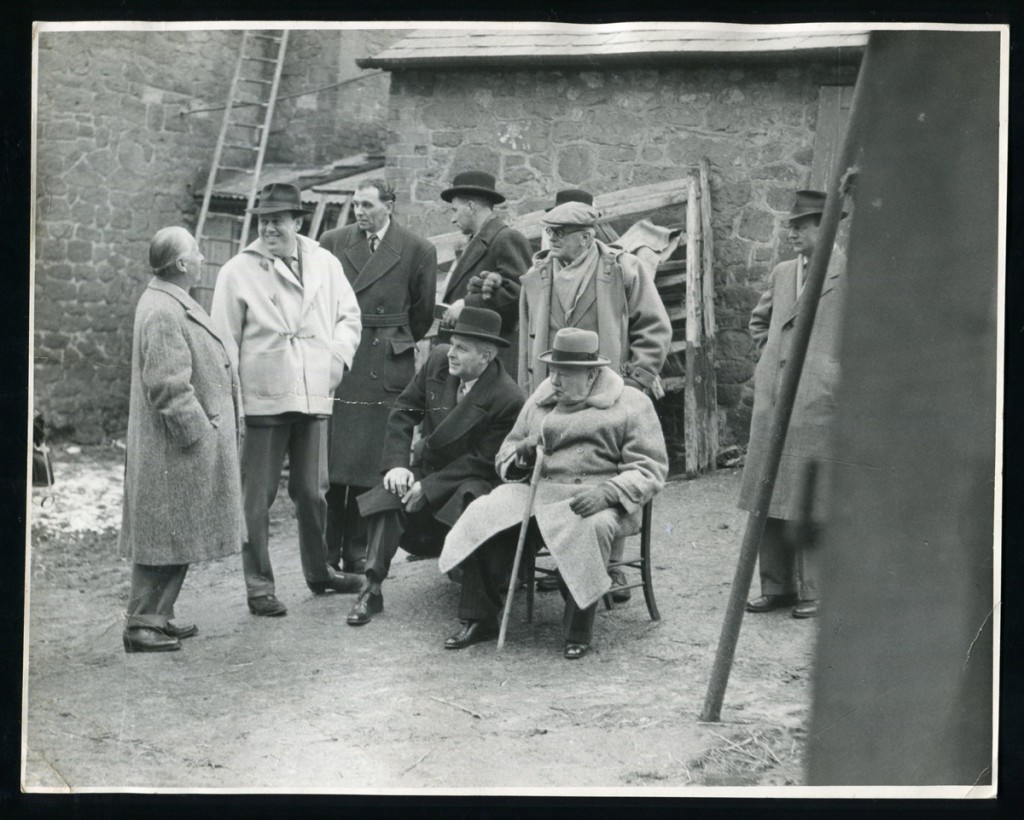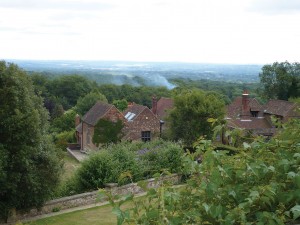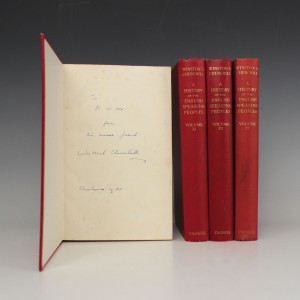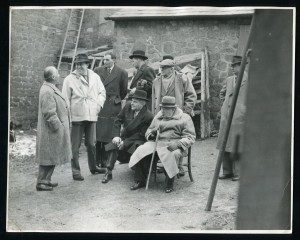Every week Rupert Toovey, senior director of Toovey’s, writes an article for the West Sussex Gazette newspaper. If you would like to read an archive of Rupert’s articles you can do so on the Toovey’s blog by clicking here. You can always read Rupert’s articles first in the West Sussex Gazette. His article this week was on the fascinating Percy Cox archive to be offered for sale in Toovey’s auction of Paper Collectables on the 5th November. Click here to read the article.
Month: November 2013
Sir Winston Churchill and Chartwell

Sir Winston Spencer Churchill bought Chartwell in 1922. It was to be home to the Churchill family over the next forty-three years. Toovey’s paper collectables specialist, Nicholas Toovey, has uncovered a small archive of photographs, letters, telegrams and notes, which document the Churchills’ relationship with their friend and estates manager, Percy Cox, OBE. The correspondence and images give a very personal insight into life at Chartwell. The Percy Cox Archive is to be auctioned in November at Toovey’s.

Churchill’s youngest child, Lady Mary Soames, has written that her father was “captivated by Chartwell from the moment he set eyes on the valley, protected by the sheltering arm of beautiful beech woods… and by the house on the hillside”. As you stand on the terrace at Chartwell, you are presented with a southerly view over the gentle landscape of the Weald of Kent; it speaks of an older England. Unsurprising, then, that this scene so inspired our greatest war-time Prime Minister. Whenever the English find themselves under threat, they turn to their monarch, their church and their landscape; our nation’s identity is bound together by these timeless threads.
An hour from London, Chartwell between the wars hosted a cast which included politicians, scientists and intellectuals. Among these were Lord Beaverbrook and Lord Camrose, the powerful proprietors of The Daily Express and The Daily Telegraph, and T.E. Lawrence and Charlie Chaplin. Famously, debates after dinner would continue into the early hours.
Churchill’s fortune from writing was severely affected by the financial crash of 1929, which signalled the arrival of the Great Depression. Life at Chartwell was always accompanied by financial worries and these coloured Churchill’s wife, Clementine’s view of their country home. By 1946 there were concerns as to whether the Churchills would be able to continue living at Chartwell.
Winston Churchill always felt his roots were at Blenheim, where he was born in 1874. Blenheim had been given to John Churchill, the 1st Duke of Marlborough, by Queen Anne and a grateful nation after his victory at Blenheim in 1704. Lord Camrose felt it wrong that Winston Churchill, the great war-time leader, could lose his home. With resonances of the gift of Blenheim, he and a group of wealthy men anonymously purchased Chartwell, on the express understanding that the Churchills would continue living there undisturbed until the end of their days, after which it would be given to the National Trust.
Churchill was always influenced by the long shadow of history, mindful to heed the warnings the past offers to the present. Much of Churchill’s writing was historical. He employed researchers like Maurice Ashley and William Deakin and would draw on their notes. Whether preparing a manuscript for a book or a speech, he liked to work standing and to dictate, cigar in hand, as he paced the room, often late into the night. Once these notes were typed, he would engage in painstaking revision. His method of working gifts his writing with the immediacy of the spoken word and displays irony, rhetoric and an honest passion.

Secure in his beloved Chartwell, he continued to write, working on his multi-volume war memoirs and his four-volume A History of The English-Speaking Peoples. The Percy Cox Archive also includes a first edition set of A History of The English-Speaking Peoples, published between 1956 and 1958, which has presentation inscriptions to Percy Cox. The worldwide syndication of these works made Winston Churchill a very wealthy man and all concerns about money vanished. Along with numerous acts of quiet generosity, it enabled Churchill to buy Chartwell Farm and a number of neighbouring farms. Nicholas Toovey comments, “The Percy Cox Archive relates to this post-war period and illustrates the fondness and respect in which the family held him. In particular, it casts light upon Mr Cox’s relationship with Winston and Clementine Churchill and their daughter Mary. Letters relating to the management of Churchill’s estates and invitations to dine at Chartwell and to attend Mary’s wedding with Lord Soames, together with photographs of Churchill and others, provide a very personal and poignant insight into their lives.”
The Percy Cox Archive contains some fifty items and is estimated to realise between £6000 and £8000. It will be auctioned at Toovey’s as part of our specialist sale of Paper Collectables on 5th November 2013. For more information, visit www.toovey’s.com or telephone 01903 891955.
By Revd. Rupert Toovey. Originally published on 30th October 2013 in the West Sussex Gazette.
